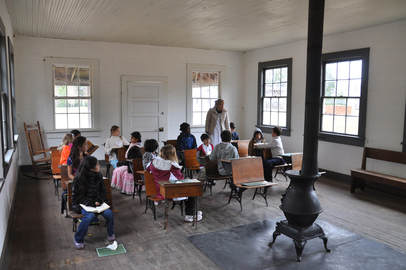|
Over the weekend the internet exploded in outrage over remarks made by Paige Patterson, president of SWBTS, over counsel he gave to a woman who shared that she was in an abusive marriage. This is one of the times it's hard to argue that the words were "taken out of context" because there's direct quotes and even Patterson affirmed the words themselves in a statement/clarification.
Patterson is a giant in SBC life. If not for his work in the 1970s to stem the tide of theological liberalism, the Convention itself might very well be dead. His unquestioned convictions have made him a polarizing figure, whether it's about his position on Calvinism or on gender roles. Like a good Texan, he's stuck to his guns. I think the counsel he gave was, though well-intentioned, off point. But it's not the point of this to heap coals on Patterson or his comments. The point is to respond to the second wave of firestorm on social media: the equation of complementarian views of gender to a culture of abuse or the condoning of abuse. In particular the idea of "submission" that says a wife should stay submissive and quiet even when she's being used as a punching bag. Pushed by noted egalitarians/Christian feminists such as Rachel Held Evans, the real bad guy in this is a system of oppression--a patriarchy perpetuated that silences victims and protects abusers. Let's be clear first about one thing: under no circumstance, under no pretense, under no "faithfulness to Scripture" is it ever OK for a man to emotionally, verbally, spiritually, or physically abuse his wife. That's not complementarianism. That's evil. Submission is a gift from a wife to her husband that flows from his Christlike leadership and guidance in the home (Ephesians 5:22-33 puts much more emphasis on the husband). This is intentional, it shows that where authority/leadership is given, there is greater expectation to lead well, with Christ as the example. Christ who provides for His Bride, Christ who suffered for His Bride, Christ who lives for His Bride, Christ who died for His Bride. Husbands, if you expect submission in your home without being willing to in a moment take a bullet for your wife, you're not a complementarian. You're a jerk. How then, do we respond? How do we serve as a complementarian pastor and lead when we're confronted with something like what Patterson presented? 1. Call it what it is, and call the cops - If you're giving counsel to a wife and she shares she's been hit or that she's being abused, don't call it a "personal matter" or don't try to fix things in house. A crime has been committed. You have not only a moral obligation but in some cases a legal obligation to report abuse. It could be a child, it could a senior adult in a care facility in their own excrement. At that point, it's not up to you anymore. The police need to be called and the legal protection afforded by God through the State needs to be applied. 2. Put them in contact with appropriate resources - In most states you'll have a dedicated group to help families in abuse/domestic violence situations. As a pastor, you need to make sure you know who to call or where to get help for a number of situations. One thing I've found useful is to keep a listing of community supports. In Florida, we have a listing of local centers through the FCADV. These trained professionals are experienced in dealing with issues of abuse/violence in ways that you as a pastor simply aren't. Don't be too proud to make a call or a referral. 3. Counsel the priority: safety for her and the children - Patterson is unquestioned in his commitment to never counsel a divorce. I know a lot of pastors with the same conviction, they hold so strongly to the permanence of marriage they can't go against that conviction. But even with that conviction, if you have that, you can still counsel and advocate for safety. Whether it's legal separation, counseling for a protective order or in extreme cases packing bags and getting them out, it's not unbiblical counsel or "destroying a marriage" to counsel for safety. 4. Pray, let the system work itself out, and then handle it in the church - Too often churches see themselves as the court system for believers based on a mishandling of 1 Corinthians 6. But the church's internal response comes after the legal response. If there's been a crime that leads to conviction, then it becomes an internal matter. Then it becomes an issue of church discipline (walking through Matthew 18 -- for the purpose ultimately of seeing the lost redeemed). But it's not something we handle apart from the responsibility of justice. As pastors, we can have an incredible amount of influence on peoples' lives through the regular preaching/teaching ministry. If we teach/preach from a true complementarian perspective (that men and women are equal in value before God, but distinct in function) then we lay the theological groundwork for husbands to see their role in the home to make their wives like Christ, and for a wife to see their role in being a strong presence in the home. In an evangelical subculture that sometimes perverts manhood into machismo, we must stand unashamedly on the truth that a man's power, physical strength, or "headship" in the home is never an excuse or reason for him to treat his wife as anything but a treasure and jewel. If we are to learn from any of this, we must be willing to acknowledge our blind spots and our need to develop systems, policies, and practices that allow for victims to be safe to disclose their abuse and know that it will be handled and treated seriously. What do you do in your church to work with these sensitive issues?
1 Comment
 One of the hardest decisions a family has to make is what avenue of education you want to pursue with your children. All of us recognize that our children are God's gift to us, that we are entrusted as stewards of not only their schedule but their soul, and that we want our best for them. In general, there are three avenues to consider taking: 1. Public School - The county/state funded school in your neighborhood or community. It could be what you're "zoned" for or you could have magnet schools. 2. Private School - Whether you choose to pursue a specifically Christian school or a private school without a specific denominational affiliation, you'll be responsible for footing the bill for tuition. 3. Homeschool - You as the parent are the primary teacher, though you may connect with other families or co-ops, you can use a dedicated curriculum or an individual assembly. I realize this isn't nuanced. It's not supposed to be. This is something that every family has to determine for themselves, and even may be different based on each child's individual needs. But whatever course you decide to take, you need to think through some questions. Is this something we're passionate about? - If you're not passionate about who and how your child is shaped and educated, you're not being a responsible parent. Whichever path you choose, it must be something you are passionate about. If you choose public school, be passionate about your child's mission impact on their friends. If homeschool, be passionate about individualized instruction. Is this something we can afford? - Jesus had warnings for those who sought to build without counting the cost. So many times we do the same with our kids. We want the best for them and we may be passionate about (for example a private Christian school), but we've failed to do the hard work of seeing how our budget would need to adjust. Is this something realistic? - A lot of Christian families are enamored with homeschool. They may be frustrated with a broken public model, they may have a desire to incorporate a biblical worldview, or they may want more time with their kids. But some families just simply can't. Both parents may have to work. It may not work with their schedule. It may be hard because they have a large family or don't have the space to dedicate to teaching. Do we have support? - Regardless of what route you choose, it's important to make sure you have support. Even in public school, it can be exhausting with projects, homework, extracurricular activities, school plays, and more. You need support to help you with all those requirements, it can come from extended family, neighbors, or through church. Or if you homeschool, do you have outlets for PE or field trips? Trying to do it alone is a recipe for burnout. Is this best for this child? - I don't know how your kids are, but my two are complete opposites. Each child is uniquely made in God's image, and comes with their own way of learning and perspective of what's best for them. Some families find their kids thrive in different settings. It's harder in terms of coordinating and transportation, but again that's where this comes back to each family considering what's best and wisest. Is it something you've prayed through? - One of my favorite promises of God is the promise of wisdom, where we're able to navigate life and apply the Bible and the prompting of the Spirit to our daily activity. And we should never make such an important decision without giving it to a season of prayer (and fasting if needed). How about you? How did you decide on your child's education? What did you choose? How's it worked? I know this sounds crazy, but... Several years ago, during a particularly difficult time in ministry, I was laying in bed when what felt like something oppressive came over me and I heard (not audibly, it was louder in my head) accusations from previous sin/mistakes with pronounced judgments. It was the scariest thing I've ever gone through, and I felt trapped. I couldn't speak, I couldn't lift my arms. I finally was able to say to Carrie "Wake up! Pray!" After Carrie prayed for a minute, whatever was going on stopped and I was able to catch my breath and tell her what had happened. When we think about spiritual warfare, we think about moments like that. We think about times where we feel like we're being hit with arrows from the Enemy. We think about being falsely mistreated and enduring difficulty. We think about nightmares and horror movies. But I love how my friend Sam Rainer put it:  For most of us in leadership, we'll endure a time of spiritual warfare, in fact if we're honest and faithful in our pursuing of God's calling, chances are we'll endure a number of seasons of spiritual warfare. I read about the failure of Nazi Germany to invade Switzerland, with German commanders refusing to attack. The reason? The Swiss were trained marksmen, and as one German said "Snipers don't shoot privates." But more often than not, our seasons of spiritual warfare are more in the realm of the ordinary. What can they look like? Distractions - If you ever watch basketball, you'll see people do everything they can to distract whoever is at the free throw line. Arizona State even calls it the "curtain of distraction," and surprisingly it works! Distractions happen whenever we're knocked off our vision and mission. Spiritual Warfare Distractions are when trivial matters are turned into life-or-death and require immediate attention. When you're distracted and focused on these, you can't pursue the calling and build on the vision. Apathy - When we experience apathy in ministry, it can be spiritual warfare. It can be the boring of the Enemy where God's people aren't captivated by the glory of Christ. Instead, life and ministry becomes a ho-hum, nothing-happening, daily repeating of the same old same old. There's no motivation. There's no vibrancy. There's no vitality. There's no life. It's just, meh. Molehills - Sometimes we think about the big landmines in ministry to be issues of theology. We like to think of ourselves as Martin Luther nailing 95 Theses to the door and changing the world. I was in a meeting once where I had to defend what the Bible teaches about marriage, gender and sexuality. I had my hammer and nails and I was ready to start a Reformation. But most of the time, the landmines we experience in ministry are molehills. They're not that big a deal. Yet when you step on them, you don't think anything will happen, but it turns into a much bigger deal than you thought. Drifting - Drift happens when there's no motor, no propulsion, no power. You're just moving along with the current. You're not moving to anywhere in particular, you're just moving. It's spiritual warfare because you're not accomplishing anything. You're not going anywhere. And in fact many times we drift away from mission towards danger (ever seen a movie where they're not drifting towards a waterfall?). Busywork - When I was in school, I hated busy work. Even in middle school, we all knew there was absolutely no purpose to the silly worksheets we were doing. All it did was keep us busy for a half hour or so. There was no point, no learning objective, no reason. Just to stay busy. And far too often, spiritual warfare is busy work. It's mindless meetings, over-structured committees, feeling the pressure to be at 12 ice cream socials in a weekend, and grinding in the never-ending cycle of activity. One of the things that has become apparent in the last couple years is the self-fulfilling bubble. In other words, we have built ourselves into tribes where we hang out and listen to people who are like us, who think like us, who look like us, who hold the same convictions, etc.
The benefit is affinity and familiarity. I spent last week with over 12,000 brothers who have the same convictions on theology, Christ, mission, and the church. It was really cool to see the fellowship formed. But if that's all we do, if that's only who we hang out with, if all we're doing is spending time in totally homogeneous circles, we're missing what God has done in designing His church. I preached Sunday through 1 Corinthians 12:12-14, and one of the richest things I saw in that was the fact that God has woven a heavenly tapestry in the Church, and it doesn't always look like us. So as leaders in ministry, here are three questions for us to ask ourselves regularly: 1. When was the last time I spent time with someone older/younger than me? In the book Spiritual Leadership, J Oswald Sanders makes it clear we need a Timothy, a Barnabas, and a Paul. A Timothy is someone younger than us, someone we're investing in. A Paul is someone older who's investing in us. A Barnabas is someone in our situation, an encourager. God has designed the Church to be a multigenerational fellowship. Younger guys, those older saints in your church worked hard to provide for their family and build the congregation you serve. They may not like your music or agree on everything with you, but you can learn much from them. Older guys, don't let your last chapters be filled with regret or bitterness. Invest in the young men who will be leading the Church after you. 2. When was the last time I spent time with someone of a different race than me? The first step here is to recognize that our racial background has a way of not only informing our worldview but also how we're viewed by the world. The experiences of our African American, Hispanic, and other racial minorities are very different from ours. We can no longer live in mono worlds, and if we're going to lead well we must take the initiative to engage with others who aren't like us. I'm grateful for the leadership of Family Church in West Palm Beach Florida and how they've recognized the cultural and ethnic melting pot of South Florida and sought to intentionally minister. 3. When was the last time I spent time with someone who votes differently than me? In our cable news cycle world, we've forgotten the lost art of civility. It's discouraging to see the rhetoric on all sides, where anyone who doesn't agree is Hitler. In 2014 Pew Research found out that there was no ideological overlap in the Senate, which had historically been the deliberative body of compromise and mutual engagement. Unfortunately, in the Obama/Clinton/Trump climate we've seen for the last few years has caused us, on both sides, to dig in trenches. Our churches have people of good conscience on both sides of the political aisle, and if we read the Gospels we'll be quick to see that Jesus cannot fit our political spectrum and cannot be hijacked to fit our expectations.  Sitting at home after nearly a week away at the Together for the Gospel conference, I can't help but reflect on how full my soul is. And how tired my body is (remind me not to book a 5:30am flight, ever). So I'm thankful for coffee and its ability to help barrel through. For many of us in ministry, conferences function as a way of continuing education and training. Even though we spend 3-4 years in intensive study in seminary, we realize that our learning is never finished. Just like doctors have to attend continuing education to maintain their credentials, we who care for souls must never forget to continue to grow. We should consider attending conferences for a few reasons: 1. We need to be challenged - Many times when we go to a conference we're wanting to be stretched or pushed in our growth. We want to learn about a ministry or program. We want to hear from a speaker we listen to on podcast. Or we need to deal with something in our life and ministry that's hindering us. 2. We need to be refreshed - One of the perks of a conference is that they're usually held in a nice area. I've yet to see a pastor's conference advertised for Nome Alaska (although I'm sure the people of Nome are quite wonderful). They're in Orlando, Dallas, Louisville, Nashville, San Diego, etc. You can go to a new city, eat in different restaurants, sleep in a hotel bed, and connect with old and new friends over coffee. It's good for our souls.  3. We need to be read - My favorite part of T4G is the book giveaway. Free books is like Christmas morning for the YRR crowd (thanks Colin Hansen for investing in us!). And whether you get a suitcase full of books or a stack of papers presented or a keynote lecture, we need to be read. Leaders are readers. When we read, we're dealing with ideas, challenging our thinking, growing in our knowledge, and shaping our action. 4. We need to bring our best back home - Your church needs you to get away periodically for a conference. They need you to be at your best, to be hungry for growth, to be physically and spiritually renewed. They need you to bring back ideas and practices and paradigms, not so you can replicate whoever was speaking on stage, but so that your church can be more faithful. Yesterday my assistant was telling me all about a message she had heard where the pastor used a phrase that stuck to her like glue - mechanical indifference. It's when we just go through the motions in our worship, in our devotions, in our church activity, and more. It's passive engagement. It's autopilot. It's walking dead.
And as leaders, it can happen to us. We can become so familiar with the routine of our lives and especially our Sundays that we can go on autopilot and move seamlessly through the motions. Mechanical Indifference happens when we fail to refresh ourselves and come into our Sundays fueled up and ready to be there. Sure you're going to have rough mornings where nothing goes right (like this Sunday where I set up my Keurig to make coffee only to forget to brew it). But when mechanical indifference sets in all we're doing is performing rituals, not pointing people to life. How can we avoid mechanical indifference? 1. Rest - You're not Superman. So don't try to be. Your body needs rest. Your mind needs rest. Your soul needs rest. Sunday worship is a Saturday decision. Get to bed earlier than you normally would. Stay hydrated. Try to rest before launching on Sunday. 2. Pray - Public ministry is only as strong as your private prayer life. Without that, you'll coast and go on adrenaline until eventually you crash. That's why in my book Start Well I dedicated a whole chapter to your own personal spiritual growth. It's that important because it's the fuel for your entire ministry and leadership. 3. Pause - Sometimes the best thing we can do on Sunday is take 5-10 minutes in the morning, pause and reflect on our day, and put off whatever baggage or stress or exhaustion we brought that morning. 4. Worship - I get it. When everyone else is singing, I'm often thinking about my message, trying to remember my introduction, taking glances at my notes, and more. And those messages stink. Because there hasn't been a time where I've sat back and engaged in worship. You need corporate worship as a pastor just as much as anyone else does. So sing, pray, and worship freely. 5. Crash - There are few things as deeply satisfying as the down time on a Sunday afternoon (especially during a thunderstorm) after a long fruitful morning of ministry. And whether I'm on the couch or "resting my eyes" in a recliner, that crash is as much food for my soul as breakfast was that morning. I can tell a difference in my Monday-Friday when I've had time to crash after Sunday.  When I was in high school our football coach wanted to deliver a powerful message, so he took out a hammer and hit a locker as hard as he could. It got our attention. Sometimes in our preaching cycles we're going to come to a message where we have a point we want to deliver, deliver it hard, and leave a powerful impact. Yesterday I shared something that I knew would leave the room speechless, and the audible gasp from everyone there sucked the air out of the room. I wanted it to be hard, I wanted it to be a gut-wrenching feeling that lingered. When you're preparing and you know you're going to drop a hammer, here's some points to consider: 1. Do it sparingly - The effect of the hammer is in its rarity. If you're constantly dropping hammers it's like a parent who always yells at their kid. The message is lost. It just becomes noise. So if every week you're dropping hammers, eventually you're going to run out of juice. If you want those moments to have the impact you want, be careful in how you use it. 2. Tell the truth - Whenever we have a powerful story to share or we want to relay an experience, tell the truth. It better have really happened. Unfortunately in the effort to deliver a point some pastors take the lazy approach and either exaggerate or fabricate a story for effect. There's a better word for that: lying. And shame on you if you take the easy road and deliver cheap points at the expense of your credibility. 3. Don't force the issue - When my kids were much younger they had the toy where you hammer shapes through the hole. And the frustration came when they'd try to hammer the wrong shape. Guys, you can't force the hammer drop. If you do, it'll lose whatever impact you want it to have. It has to be the right time, the right text, the right setting, and the right environment. So if you're wanting to drop a hammer about a lack of giving, don't do it right after your community has been rocked by layoffs at the large employer. In the same way, don't drop a hammer if it doesn't fit the text you're preaching from. 4. Avoid the martyr complex - The first time I ever tried doing this I wanted the church I was serving at as a youth pastor to know some things happening behind the scenes, in essence there were people engaging in sedition against the pastor and using me as a pawn in that. I still think I did the right thing, but I made myself into the martyr, and it was the wrong approach. When we make ourselves the martyr in our hammer drops, we're putting the bullseye on us. Instead, put the bullseye the problematic idea you want to address. 5. Buckle up - Whenever we lead prophetically and speak boldly into an issue that must be addressed, it's going to have fallout. The prophets in the Old Testament spoke boldly on behalf of God, but their message wasn't always received well. So if you're going to address issues of racism in the church or of apathy towards evangelism or towards embracing plural elders or whatever it might be... buckle up. Because leaders face no opposition and no pushback when they do nothing. But God hasn't called you to nothing. He's called you to lead.
This week's episode was where I got to talk to one of the most important people in my life, my mentor all through college and seminary. Apart from my wife, he's been the most influential person in helping me understand God's call in my life.
Scott is the pastor at Northside Baptist Church in Rock Hill SC. He's married to Marcie and they have 4 kids, he is an avid Miami Hurricanes fan and loves leading and serving the local church. Check out the U40 podcast on Twitter!  One of my favorite authors I read while a doctoral student was Jim Collins. His book Good to Great profiled the rise of successful companies that didn't just earn money, they were game changers in their field. Collins' books are invaluable for ministry not because we're trying to manipulate the market, but because he hits on something unique about successful companies: the right people matter. To illustrate that, he uses a bus as his example. Leaders are the bus drivers. And they're working to make sure they get the right people on the bus in the right seats. The reason why? People > Programs. We can have incredible programs, initiatives, projects, and ministries. But without the right people... nothing matters. For Collins writing in business literature, he says "Who then What." You identify the right people first, then you find out how to deploy them. What do the "right people" look like? I think the right people are marked by a few key qualities. 1. Humble - The right people don't claim to have all the right answers, don't make it all about them, are willing to serve in whatever capacity they can, aren't motivated by pride or ego. The right people recognize that their responsibility as leaders either on staff or as a volunteer is to first and foremost be a servant. 2. Faithful - The right people are invested in the ministry. They're faithful in attending, giving, praying, learning, growing. They're faithful in the small things first. They're faithful in their obligations at work and at home. Faithful people make great leaders. They're trustworthy. You know you can count on them. So when you're looking to fill key seats on the bus, look around and see who's faithfully serving now and can be trusted with more.  3. Teachable - None of us have it all figured out. We all have room to grow and develop as leaders. Someone who is teachable recognizes this, is receptive and grateful for constructive feedback, acknowledges weaknesses and shores them up. A teachable person is flexible and adaptable and is willing to learn what they need to do in order to do the job well. Someone who isn't teachable is going to shut off feedback, stay set in their ways, and not open themselves to new ideas. 4. Hungry - The right people are chomping at the bit to do more. They're excited about the vision. They've bought into the mission of the church or ministry or company. They want it to succeed. They have a burden for people or their community. They're not satisfied with status quo. Hungry people make great leaders because they're not just content to sit in their seat on the bus. They want to know how their seat makes a difference. 5. Available - Not everyone needs to be on the bus. Not everyone on the bus needs to be in the "key seats." There's a reason why when you get on an airplane they put restrictions on who can sit in the exit row. In the event of an accident, those people need to be available and able to do what's needed. Not everyone is available to be on the bus. They may have health issues. They may have too much on their plate at work or at home. They may be coming off a season of burnout or exhaustion. They may already have a seat (or two) on the bus. 6. Supportive - All of us have been in the car with a backseat driver. There's a reason there's one steering wheel on the bus. Leaders have been given the task of driving the bus. There's not only incredible opportunity but incredible responsibility (and liability) for the driver. The weight of driving the bus to lead a ministry or church or company is both exhilarating and exhausting. If we want the right people, they need to be supportive. Not yes men, but supportive. Yes men don't ever ask questions or push back and ask why. Supportive people trust leadership, but feel the freedom to ask questions to help understand. What would you add to the list of "right people" for the bus? How have you seen right people in a church help it thrive?  Not only is today Monday, but it's the Monday after Easter Sunday. The most emotionally and spiritually charged and exhausting day of the week is compounded by being the biggest holiday on the Christian calendar. And if you're sitting at your desk on Monday feeling like you're on empty, join the club. It's called the Easter Blah. Mondays are usually the hardest day of the week for pastors to start with, they come with their own blahs. But when it's the Monday after Easter, it's an even bigger sand trap of productivity. So how can we overcome the Easter Blah in ministry? Text or Call Your Staff - Easter is an awesome day of ministry, family, and traditions. Talk with them about how their Easter went, what their family did, get their feedback from Sunday. Whatever you want to talk about with them, make sure you're engaging with them. If nothing else, you'll at least have some distraction from the Blah, but chances are you'll be encouraged to hear what was happening throughout the church in other people's ministries.
Spend Extra Time in Prayer - Monday is a great day of prayer anyway as we lay out our week, determine our preaching passage, or work through the list of callbacks and ministry visits to make. When you're tired, when you're weak, when you're struggling with finding energy, give some extra time to spending time with God. Don't Do Heavy Lifting - You're coming off the biggest, hardest, most exhausting day of the Church Calendar. It's not the day you need to try to do heavy lifting. It's the day you need to review emails, catch up on your phone list, straighten your office, write an article, whatever you need to do. Be Thankful - How cool was it yesterday? You got to welcome guests, celebrate Jesus, and make an impact on your community for Jesus. I'm grateful for all the people we had on campus for an Easter breakfast, our worship services, and our Egg Hunt for our kids. It was a great day. It's hard to believe sometimes I get to do this. So today, I'm thankful. How are you dealing with your Easter Blah this year? |
Scott M. DouglasA blog about leadership and the lasting legacy of family ministry. Archives
August 2023
Categories
All
|

 RSS Feed
RSS Feed



